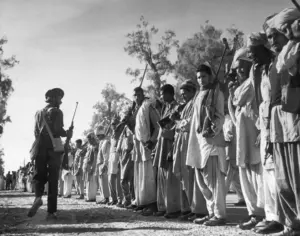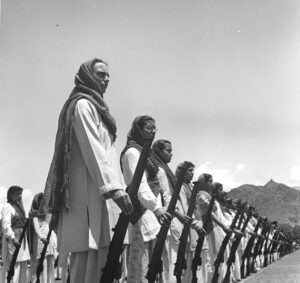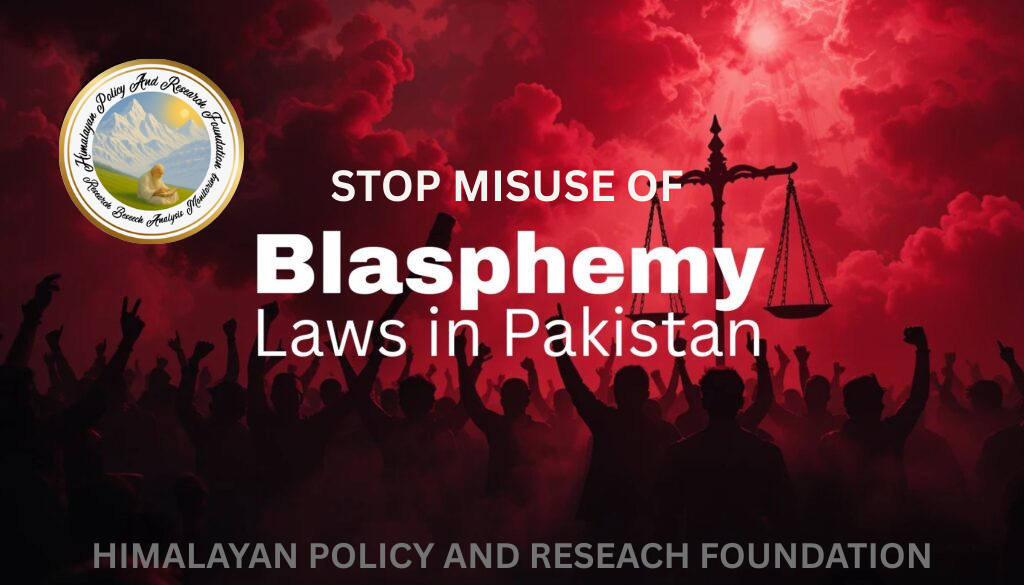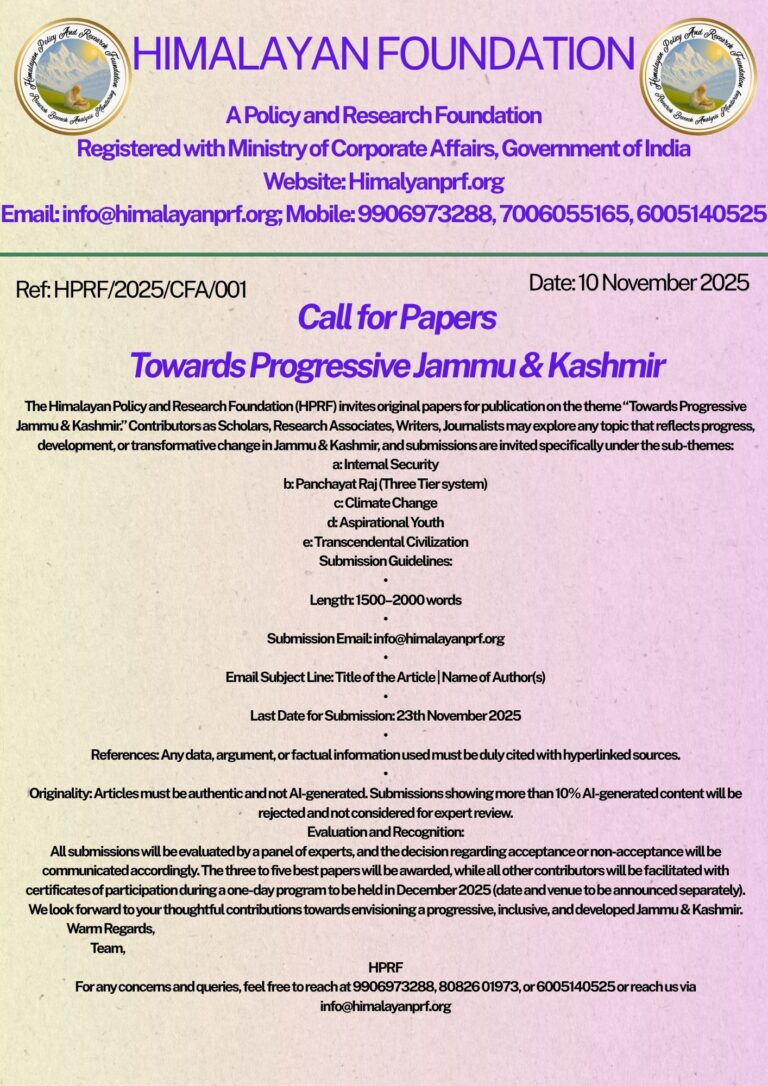BY: Peerzada Muneer
The history of Pakistan’s blasphemy laws, and in particular Section 295-C of the Pakistan Penal Code, reveals a trajectory shaped by colonial legacies, postcolonial anxieties, authoritarian Islamization, and judicial entrenchment. The result has been the creation of one of the most severe statutory regimes in the world for the regulation of speech about religion. What began as a colonial experiment to prevent communal riots has transformed into a modern legal and political crisis that undermines the very religiosity it claims to protect.
The origins lie in the Indian Penal Code of 1860, drafted by the British under the supervision of Thomas Macaulay. In that statute, Section 295 criminalized the destruction or defilement of places of worship, and the rationale was not primarily religious but political. The British colonial state sought to minimize inter-communal violence, fearing that religious conflict could disrupt order and weaken imperial control. By the 1920s, as communal tensions intensified, the colonial administration introduced Section 295-A in 1927. This amendment was prompted by an incendiary pamphlet that contained derogatory material about the Prophet Muhammad, leading to widespread protest and violence. Section 295-A criminalized deliberate and malicious acts intended to outrage religious feelings, thereby introducing the idea of “religious offense” into criminal law. Scholars of colonial history note that this move was a pragmatic attempt to regulate public order rather than a theological endorsement of blasphemy laws, but it nonetheless created a legal framework in which religious insult became a criminal offense.
When Pakistan was created in 1947, it inherited the colonial penal code almost intact. For three decades, little changed. The provisions on religious offense remained in the background, occasionally invoked but not politicized to the degree seen today. It was under General Zia-ul-Haq, beginning in the late 1970s, that the blasphemy provisions were dramatically expanded. Zia, seeking to legitimize his military regime through Islamization, introduced new sections between 1980 and 1986. Section 298-A penalized derogatory remarks against members of the Prophet’s family or companions; Sections 298-B and 298-C specifically targeted Ahmadis, making it a crime for them to “pose as Muslims” or use Islamic terminology; Section 295-B criminalized desecration of the Qur’an, prescribing life imprisonment; and most consequentially, Section 295-C criminalized derogatory remarks against the Prophet Muhammad, making them punishable by death or life imprisonment.
This expansion marked a radical departure from colonial intent. What was once a public order provision applicable to all communities now became an instrument for enforcing Islamic orthodoxy and for marginalizing minorities, especially Ahmadis who had already been declared non-Muslims in 1974. The new statutory framework, passed under authoritarian rule, reflected not only political expediency but also a shift in Pakistan’s national identity project. Islamization turned blasphemy into a litmus test of loyalty to the state and to the faith, and the law became a weapon in ideological and sectarian struggles.
The decisive turning point came in 1991, when the Federal Shariat Court ruled that the alternative punishment of life imprisonment under Section 295-C was un-Islamic. The Court held that the only valid punishment was death. This ruling eliminated judicial discretion and entrenched capital punishment as mandatory. Since then, Section 295-C has stood as a death-penalty provision for speech, unique in its severity. Legal scholars point out that this judicial intervention closed the door to proportionality, rendering every conviction a potential death sentence regardless of context or intent (The Friday Times).
The structural features of the law make misuse inevitable. It is drafted in vague terms, speaking of “use of derogatory remarks” without defining what counts as derogatory, thereby leaving enormous latitude for interpretation. It operates almost as a strict liability offense, since intention or mens rea is not required; even inadvertent speech can be construed as blasphemy. Procedural safeguards are virtually absent, because accused persons are rarely granted bail due to the threat of mob violence, and trials proceed under intense social pressure. Reports by the Human Rights Commission of Pakistan and international observers document that accusations often emerge from personal vendettas, property disputes, or business rivalries rather than from genuine religious offense. The mere lodging of a complaint is often enough to ruin lives, since accusation alone triggers mob fury and state machinery.
From colonial public order to authoritarian Islamization and judicial entrenchment, the trajectory of Section 295-C reveals a progression that has steadily increased the severity of penalties and the likelihood of abuse. A statute framed in the name of protecting sanctity has, in practice, destabilized law and society, generating fear rather than faith.
Global, Comparative, and Human Rights Perspectives
To appreciate the uniqueness of Pakistan’s crisis, it is important to situate Section 295-C in comparative and global perspective. Laws against blasphemy or religious insult exist, or have existed, in many societies, yet Pakistan’s regime is distinctive in its severity, scope, and consequences.
In Europe, blasphemy laws survived well into the twentieth century. Denmark only repealed its blasphemy provision in 2017, Ireland in 2018, and Greece in 2019. Britain’s blasphemy law, once used to prosecute publications deemed offensive to Christianity, was abolished in 2008 after decades of dormancy. These repeals reflect a liberal consensus that protecting religious honor cannot justify criminal sanctions in democratic societies. India, which inherited the same colonial Penal Code as Pakistan, still retains Section 295-A, but this provision criminalizes only deliberate insults with intent and carries a maximum sentence of three years. Unlike Pakistan’s Section 295-C, it does not prescribe death, nor is it treated as a non-derogable offense.
In Muslim-majority countries, a variety of approaches exist. Saudi Arabia and Iran retain severe blasphemy laws, sometimes tied to apostasy, but their enforcement occurs within religious courts and remains connected to broader theocratic frameworks. Indonesia and Malaysia also criminalize blasphemy, but the penalties are lighter, usually a few years’ imprisonment. In no other country has the combination of colonial legacy, authoritarian Islamization, and judicial entrenchment produced a law as severe as Pakistan’s 295-C, which mandates the death penalty for verbal offense.
From the perspective of international human rights law, the incompatibility is clear. Pakistan is a party to the International Covenant on Civil and Political Rights. Article 19 guarantees freedom of expression, while Article 18 guarantees freedom of thought, conscience, and religion. Limitations are permitted only if they are lawful, necessary, and proportionate, and they must aim to prevent serious harms such as incitement to violence. Section 295-C, by criminalizing mere insult and prescribing death, fails all these tests. It is vague and thus fails the legality requirement. It is unnecessary, since most accusations involve private quarrels rather than genuine threats to public order. It is disproportionate, since capital punishment for speech is by definition excessive (Courting the Law).
Human rights organizations have repeatedly highlighted these violations. Amnesty International describes the law as “fundamentally incompatible with human rights,” pointing to its use in silencing dissent and victimizing minorities. The International Commission of Jurists has argued that trials under the law are inherently unfair, since mob pressure prevents impartial hearings and lawyers defending accused persons face threats themselves. The United Nations Human Rights Council has urged Pakistan on multiple occasions to reform or repeal the provision. (Amnesty, CFJ Report)
The human cost of Section 295-C is tragically illustrated by case studies. Asia Bibi, a Christian farm worker, was accused in 2009 after a quarrel over water. She spent nearly a decade on death row before the Supreme Court acquitted her in 2018, citing lack of evidence. Even after acquittal, she was forced into exile, since mobs threatened to kill her. Salman Taseer, Governor of Punjab, was assassinated by his own bodyguard in 2011 after he publicly defended Asia Bibi and criticized the blasphemy laws. Shahbaz Bhatti, the Federal Minister for Minorities, was gunned down the same year for calling for reform. Junaid Hafeez, a university lecturer, has languished in solitary confinement since 2013 after students accused him of blasphemy; he was sentenced to death in 2019 and continues to await appeal. Dozens of individuals have been lynched by mobs after allegations spread, including the brutal killing of a factory manager in Sialkot in 2023. (BBC, Dawn, The Hindu, NALSAR, Amnesty USA
These examples show that Section 295-C is not simply a legal text but a social trigger. The existence of the law legitimizes mob action by sending the message that insult to religion deserves death. The line between legal process and mob justice collapses, and the law fuels the very violence it was supposed to prevent.
The global community has taken note. The European Parliament passed a resolution in 2021 calling on Pakistan to repeal the law, warning that its continued use could jeopardize trade privileges under the GSP+ scheme. The United States Commission on International Religious Freedom continues to list Pakistan as a “country of particular concern.” Governments of the United Kingdom, Canada, and Germany have repeatedly raised the issue in diplomatic dialogues. Yet inside Pakistan, political leaders find reform nearly impossible. The memory of assassinated politicians like Taseer and Bhatti looms large, and parties fear alienating powerful religious lobbies. In 2018, Imran Khan himself defended the blasphemy laws during his election campaign, underscoring how deeply entrenched they have become in political discourse (The Guardian).
In comparative perspective, Pakistan stands out as a global anomaly. While other societies have either repealed or softened their laws, Pakistan has hardened its blasphemy regime and removed judicial discretion. While international law demands narrow and proportionate restrictions, Pakistan maintains a statute that prescribes death for speech. The consequence is predictable: widespread abuse, global condemnation, and internal turmoil.
Religious, Ethical, and Contemporary Challenges
The most profound critique of Section 295-C, however, comes not only from secular human rights norms but also from within Islamic thought itself. Many Muslim scholars argue that the law contradicts Qur’anic principles, prophetic practice, and Islamic ethics, thereby threatening the very religiosity it purports to defend.
The Qur’an itself recounts numerous instances in which the Prophet Muhammad was insulted, mocked, or opposed. Yet the response it prescribes is not legal punishment but patience, forgiveness, and reliance on God’s judgment. In one verse, believers are told they will hear much abuse from those who disbelieve, but they are urged to be steadfast and mindful of God. Another verse declares that there is no compulsion in religion, underscoring the principle that faith cannot be coerced. The Prophet’s biography amplifies this ethos. After the conquest of Mecca, he forgave those who had insulted and opposed him. He endured mockery without retaliation, preferring persuasion and moral example over coercion.
Modern scholars have drawn on these foundations to critique contemporary blasphemy laws. Javed Ahmad Ghamidi, a prominent Pakistani intellectual in exile, has argued consistently that there is no Qur’anic or prophetic basis for capital punishment for blasphemy. He explains that juristic rulings equating blasphemy with treason emerged in specific historical contexts and cannot be generalized to pluralistic societies. For Ghamidi, the Pakistani statute lacks textual warrant and produces unjust consequences. Maulana Wahiduddin Khan similarly emphasized that forgiveness and patience, not punitive coercion, represent the true prophetic model (Ghamidi). Abdullahi Ahmed An-Na’im (SOAS Research Online) situates the issue within a broader project of reconciling Islamic law with human rights, arguing that states should not criminalize matters of belief or conscience. Khaled Abou El Fadl, one of the leading voices in contemporary Islamic jurisprudence, stresses that coercion in religion undermines Islam’s moral authority and that authoritarian uses of Sharia betray its plural interpretive traditions (Khaled).
These critiques converge on a simple point: coercive punishment for blasphemy undermines Islam’s ethos of mercy, patience, and persuasion. To criminalize non-violent speech with death is to collapse the distinction between sin, which is a matter between the individual and God, and crime, which legitimately concerns the state only when life, property, or public order are threatened.
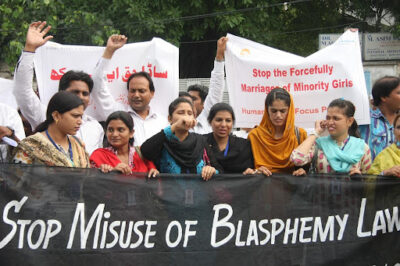
The recent case of Engineer Muhammad Ali Mirza illustrates these tensions vividly. Born in Jhelum in 1977 and trained as a mechanical engineer, Mirza left his technical career to become a religious commentator. Through YouTube and lectures, he built a following in the millions by challenging sectarian divisions and advocating for a rationalist approach to Islam. His critiques of saint-veneration practices and sectarian polemics earned him both admiration and hostility. He survived assassination attempts in 2017 and 2021, and in 2023 he was accused under Section 295-C. In August 2025, following the circulation of a viral video allegedly containing derogatory remarks, Engineer Mirza was detained under the Punjab Maintenance of Public Order, charged under Section 295-C of the Pakistan Penal Code and the Prevention of Electronic Crimes Act, and had his academy sealed. In one interview clip, he explained that a particular community referred to Prophet Muhammad by a certain name, and in doing so repeated their words. This repetition triggered controversy and led to his arrest after multiple religious groups filed complaints. Clerics soon mobilized against him, crowds gathered, and calls for his execution spread. Civil-society groups, however, cautioned that his case exemplified how blasphemy laws are weaponized to silence intellectual dissent (Dawn, Dunya News, Tribune).
Mirza’s ordeal underscores how 295-C functions as a tool not for protecting sanctity but for silencing dissenting voices within Islam. His theological arguments, even if controversial, were part of internal debate. Yet the law allowed opponents to frame them as blasphemy, triggering the full force of state and society. In this sense, the law not only stifles minority voices but also suppresses intra-Muslim reform and inquiry.
The broader ethical consequences are severe. First, freedom of conscience and inquiry is eroded. Intellectual debate and theological exploration become perilous, as fear replaces dialogue. Second, the moral credibility of religion itself is distorted. Instead of embodying mercy and patience, religion appears coercive and violent, leading many to question its moral authority. Third, the law empowers mobs and extremists rather than protecting sanctity. Accusations become weapons in personal vendettas, while the state becomes complicit in legitimizing violence.
The case for reform, therefore, is both religious and humanistic. Scholars like Ghamidi insist that retaining 295-C in its present form betrays Islam’s foundational principles. Civil-society organizations propose safeguards such as requiring higher standards of evidence, punishing false accusers, and ensuring judicial protection for accused persons. International actors press for repeal. Yet political leaders remain trapped by fear of backlash, and mobs continue to act with impunity.
Unless reform occurs, Pakistan faces a deepening cycle of accusations, mob violence, unfair trials, international isolation, and erosion of religiosity itself. The lesson of the Prophet’s life, embodied in patience and forgiveness, must be reclaimed. To honor the Prophet is not to kill in his name but to live by his mercy.
Conclusion
Section 295-C of the Pakistan Penal Code is not merely a statute but a crisis that threatens religion, society, and humanity. Historically, it emerged from colonial efforts to manage communal order, was transformed by authoritarian Islamization into a draconian provision, and was entrenched by judicial rulings that mandated death. Comparatively, it stands as an anomaly, harsher than any other blasphemy law in the world. From a human rights perspective, it violates freedom of conscience and expression and legitimizes mob violence. From an Islamic perspective, it contradicts Qur’anic guidance, prophetic mercy, the ratiocination, epistemic scepticism, and the very idea of thinking, critiquing, and questioning in order to know and reach the truth.
The cases of Asia Bibi, Salman Taseer, Shahbaz Bhatti, Junaid Hafeez, and most recently Engineer Muhammad Ali Mirza show how the law devastates lives, silences reform, and fuels violence. Far from protecting religion, it undermines religiosity by replacing mercy with fear and persuasion with coercion. Unless Pakistan rethinks this law fundamentally, the crisis will go on, deepening mistrust within society and distorting the moral message of Islam. The true defense of the Prophet lies not in executing dissenters but in embodying his mercy. Reform is therefore not only a human-rights imperative but also a religious duty.

